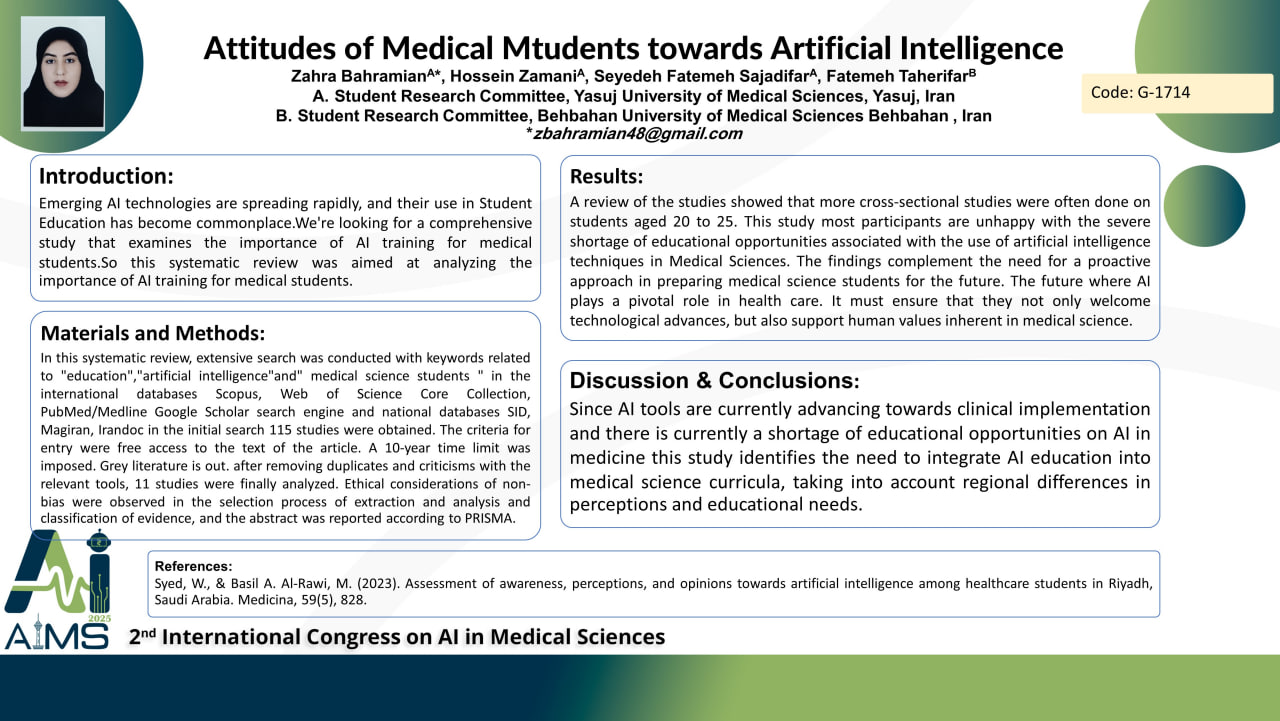نگرش دانشجویان علوم پزشکی نسبت به هوش مصنوعی
کد: G-1714
نویسندگان: Zahra Bahramian * ℗, Hossein Zamani, Seyedeh Fatemeh Sajadifar, Fatemeh Taherifar
زمان بندی: زمان بندی نشده!
برچسب: دستیار مجازی هوشمند
دانلود: دانلود پوستر
خلاصه مقاله:
خلاصه مقاله
Background and aims: Emerging AI technologies are spreading rapidly, and their use in Student Education has become commonplace.We're looking for a comprehensive study that examines the importance of AI training for medical students.So this systematic review was aimed at analyzing the importance of AI training for medical students. Method: In this systematic review, extensive searches were performed with keywords related to 'artificial intelligence', 'education' and 'medical science students' in the international databases of Web of Science Core Collection, PubMed/Medline Scopus, Google_Scholar search engine, and national databases of Irandoc, SID, and Magiran. The initial search yielded 115 studies. Inclusion criteria were publication in Persian/English and free access to the text. Grey literature came out. A 10-year time limit was imposed. After eliminating duplicates and critiquing with relevant tools, at least 11 studies were analyzed. Ethical considerations of non-bias were observed at the stages of selection, extraction, analysis, and classification of evidence, and the abstract was reported according to PRISMA. Results: The initial search yielded 115 studies. 11 studies were finally analyzed. A review of the studies showed that more cross-sectional studies were often done on students aged 20 to 25. This study most participants are unhappy with the severe shortage of educational opportunities associated with the use of artificial intelligence techniques in Medical Sciences. The findings complement the need for a proactive approach in preparing medical science students for the future. The future where AI plays a pivotal role in health care. It must ensure that they not only welcome technological advances, but also support human values inherent in medical science. Conclusion: Since AI tools are currently advancing towards clinical implementation and there is currently a shortage of educational opportunities on AI in medicine this study identifies the need to integrate AI education into medical science curricula, taking into account regional differences in perceptions and educational needs.
کلمات کلیدی
Artificial Intelligence, Education, Medical Science Students
